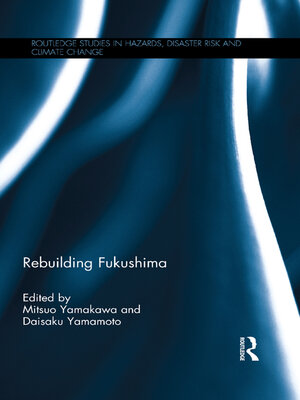Rebuilding Fukushima
ebook ∣ Routledge Studies in Hazards, Disaster Risk and Climate Change
By Mitsuo Yamakawa

Sign up to save your library
With an OverDrive account, you can save your favorite libraries for at-a-glance information about availability. Find out more about OverDrive accounts.
Find this title in Libby, the library reading app by OverDrive.



Search for a digital library with this title
Title found at these libraries:
| Library Name | Distance |
|---|---|
| Loading... |
Five years after the one of the worst nuclear accidents in history, Fukushima now only occasionally headlines national and international media. However, the disaster is far from over, as evidenced by a hundred thousand people from Fukushima still in the state of evacuation, rising levels of radiation in streams and rivers, and failing attempts to control the leakage of radioactive materials at the Fukushima Daiichi Nuclear Power Plant. Despite these dismal conditions, efforts to recover and rebuild livelihoods in the afflicted regions of Fukushima did start immediately after the outset of the accident.
Rebuilding Fukushima gives an account of how citizens, local governments, and businesses responded to and coped with the crisis of Fukushima. It addresses principles to guide reconstruction and international policy environments in which the current disaster is situated. It explores how reconstruction is articulated and experienced at different spatial scales, ranging from individuals to communities and municipalities, and details recovery efforts, achievements, and challenges in the realms of public transportation, agriculture and food production, manufacturing industries, retail sectors, and renewable-energy industries. This book also critically investigates the nature of the current reconstruction policy schemes, and seeks to articulate what may be required in order to achieve more sustainable and equitable (re)development in afflicted regions and other nuclear host regions.
Drawing on extensive fieldwork and local surveys, this volume is one of the first books in English that captures the knowledge and insights of native Japanese social scientists who dealt with the complexities of nuclear disaster on a day-to-day basis. It will be of great interest to students and scholars of disaster-management studies and nuclear policy.







